The Galapagos Islands of Ecuador are already itself a true paradise, with breath-taking nature, exotic animals and crystal clear water surrounding it. The true star of the island remains although the Galapagos tortoise. This impressive reptile can weights up to 250 kg, get over 100 years old and only exists in two places in the world: on the Galapagos Island and on the Aldabra in the Indian Ocean.
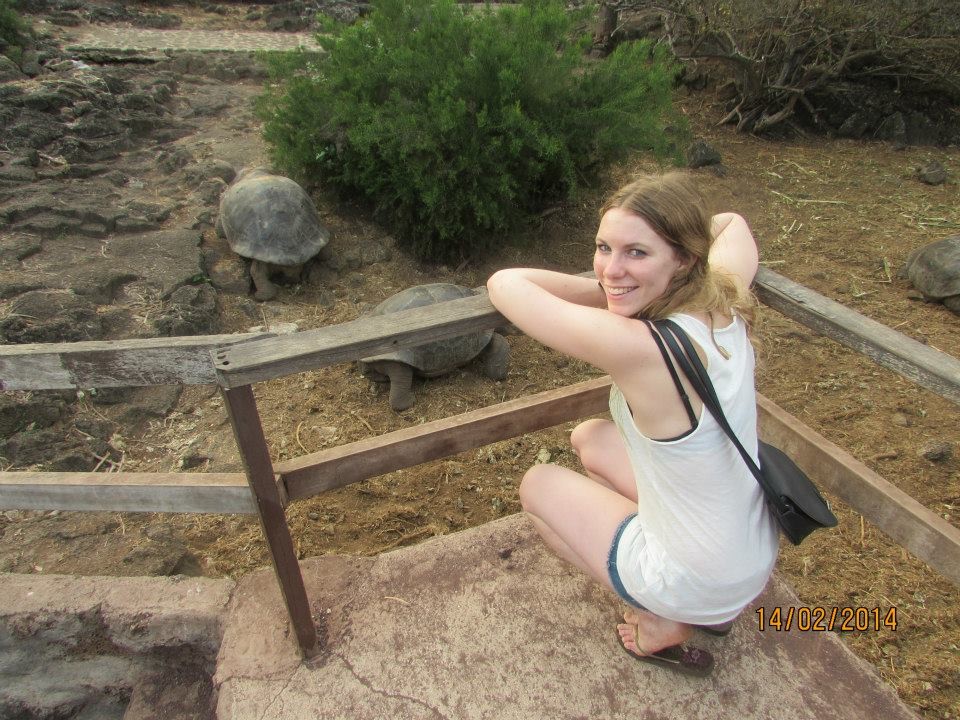
The giant tortoise is a protected species and on the Galapagos Island, in the town of Puerto Ayora on Santa Cruz Island, they have created a center to protect and conserve the Galapagos tortoise: the Charles Darwin Research Station.
The Station can be visited ever day for free. You can just enter and get to see the tortoises in their area, as well as some other reptiles the Station is working with. They don’t only protect the animals but also use them for scientific reasons, doing researches on the fascinating species. With their center they also want to educate about the importance of the conservation of the islands and its inhabitants.
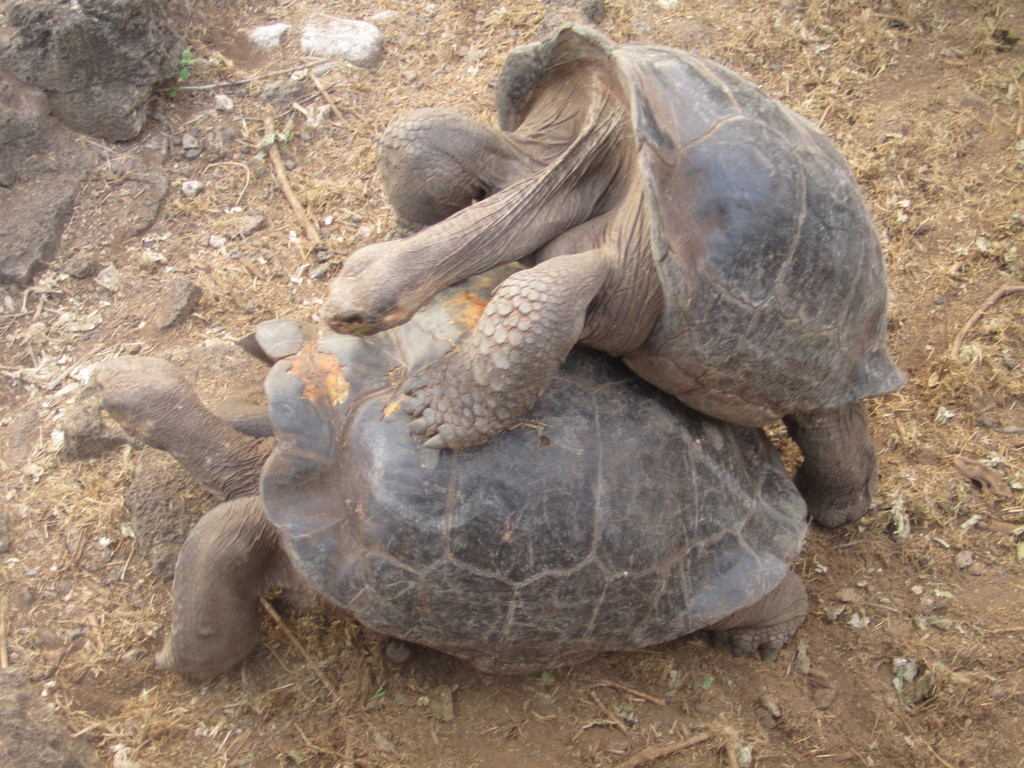
Until 2012 the Charles Darwin Research Station was the home of the famous “Lonesome Gorge”, a Pinta Island tortoise, which is a subspecies of the Galapagos tortoise. Gorge was the last survivor of his species, which was completely wiped out. Unfortunately Lonesome Gorge died in 2012.
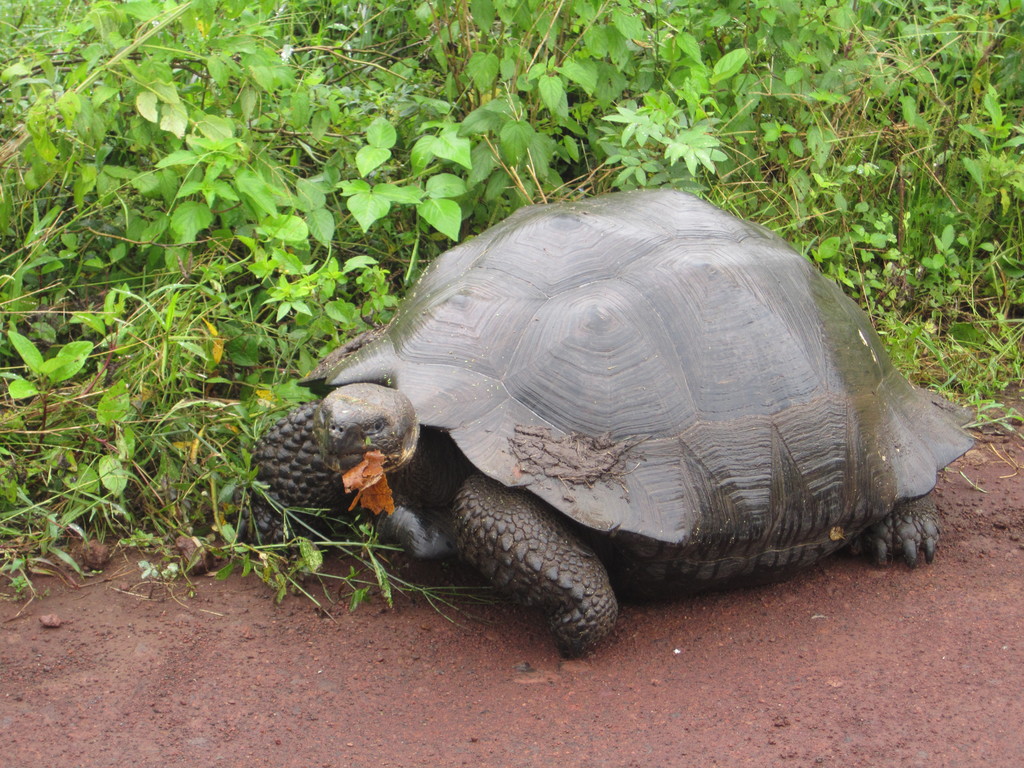
Another great place to see them in nature is situated just outside of Santa Cruz. You can get a taxi or book a tour to get to the national park where the giant tortoises are found in their natural environment. As the species is today strictly protected you are not allowed to get any closer to them than two meters to them. But already at two meters distance the reptiles are incredibly impressive to stand next to. You would never think that turtles can get that big! At this national park you can see a whole lot of them, sitting in the grass, bathing in the little lakes and “walking” around (walking is exaggerated, as they hardly move at all even if they want to haha! ).
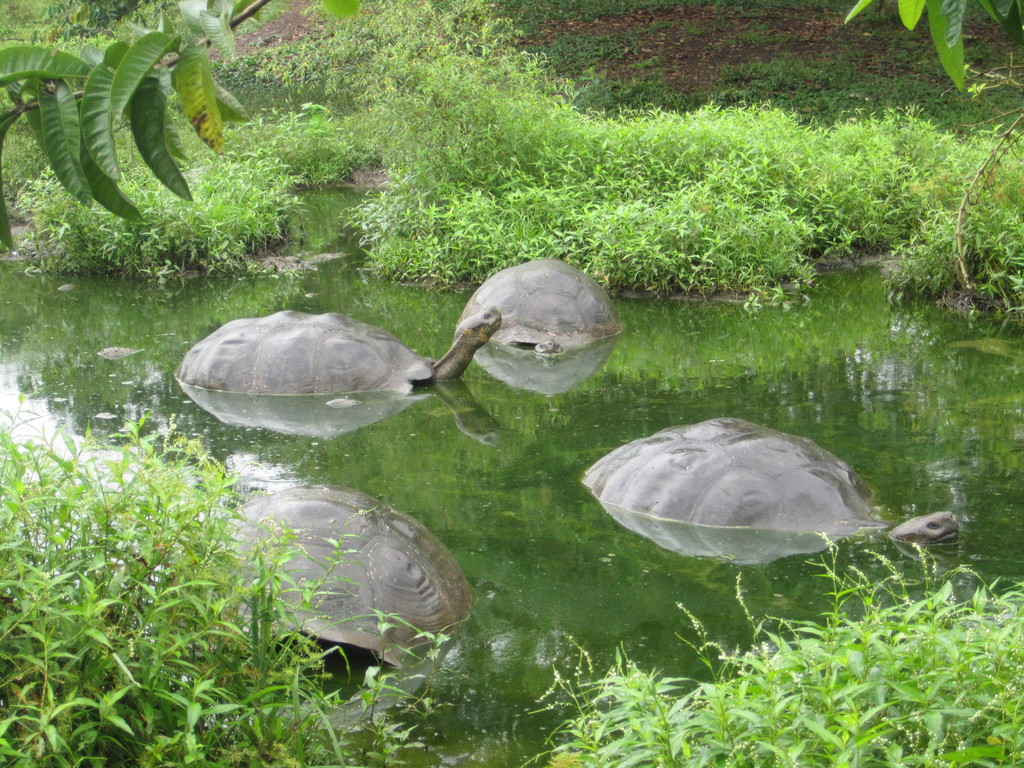
If in the Charles Darwin Research Center or in their natural environment: the Galapagos Turtoise is something you don’t get to see every day and which reminds you of how important it is, to protect them and their habitat. If you are lucky enough to visit the Galapagos Islands you should go find them!
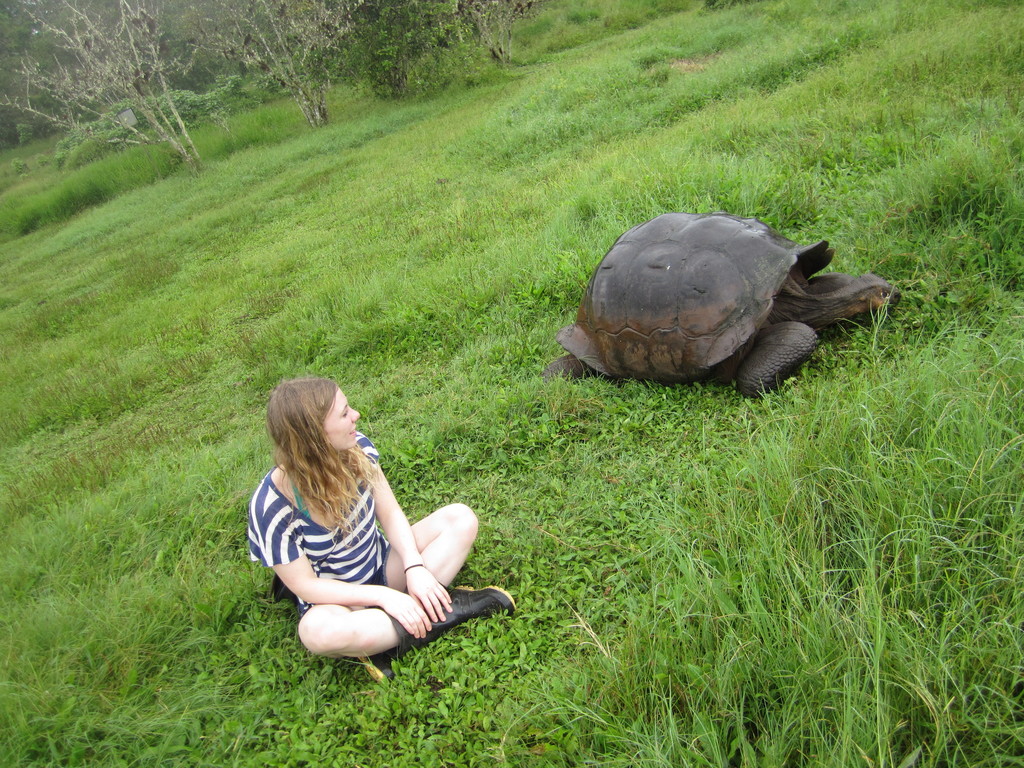
Photo gallery
